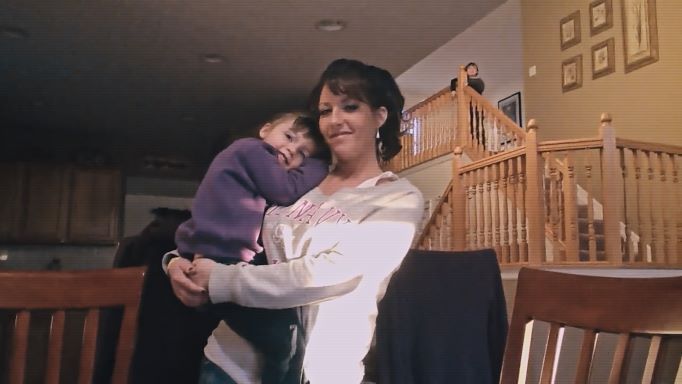![]() Sometimes it’s enough for a film to be an unapologetic piece of advocacy journalism, as is the case with The Fire That Took Her, Patricia E. Gillespie’s absolutely heartbreaking documentary about Judy Malinowski, an Ohio mom who was doused with gasoline and set afire by her ex-boyfriend in the parking lot of a gas station. She lived for about 700 excruciating days in a hospital bed until finally succumbing to the horrifying burns that covered her entire body.
Sometimes it’s enough for a film to be an unapologetic piece of advocacy journalism, as is the case with The Fire That Took Her, Patricia E. Gillespie’s absolutely heartbreaking documentary about Judy Malinowski, an Ohio mom who was doused with gasoline and set afire by her ex-boyfriend in the parking lot of a gas station. She lived for about 700 excruciating days in a hospital bed until finally succumbing to the horrifying burns that covered her entire body.
Judy’s story is a difficult watch, especially when Gillespie shows extensive footage of her lying in pain in the hospital. But it’s impossible to look away because we are witnessing an ordinary woman of extraordinary courage and fortitude who hangs on for her family’s sake and also to make sure that Michael Slager, the man with a long criminal record who perpetrated the crime, is properly punished—her doctors are surprised that she did not die immediately after the incident and that she actually improved for a time.
Although the crime and its eventual deadly aftermath is Gillespie’s focus, the filmmaker makes what happens even more devastating by filling in some family history. Judy’s mother, Bonnie, tough as nails throughout—it’s obvious where Judy gets her mental toughness from—relates that the state of Ohio refused to help with the millions of dollars in her daughter’s hospitalization costs because she had an illegal substance in her body at the time she was disfigured. Although that had nothing to do with what happened to her, the topic opens a discussion of Judy’s past troubles with substance abuse: She started with painkillers after beating ovarian cancer and soon progressed to heroin.
Perhaps most saddened by what happened to Judy is her brother Patrick, who has Down syndrome. A Beatles fan, he sings slightly changed lyrics to the tune of “Let It Be”: “When I find myself in times of trouble/sister Judy comes to me,” and I dare anyone to stay dry-eyed as he does so.
Gillespie features numerous home movies of a spirited Judy with her family through the years, and these memories of her as a generous and loving sister, daughter, and mother are contrasted by what she became following Slager’s attack in August 2015. Slager is first charged with aggravated arson and felonious assault, and to avoid Judy testifying against him, he pleads “no contest” and is sentenced to 11 years, which even the trial judge considers scandalously light. But domestic abuse charges have always been difficult for women victims to emerge victorious against in a court of law, and even more so for Judy, so grievously injured that she makes sure to give her testimony from her hospital bed—even cross-examined by Slager’s defense lawyer—in case he is retried for murder after her death.
Gillespie leaves hanging in the air a crucial but unasked question: How much do victims of domestic violence have to suffer before getting justice? In Judy’s case, it happened only because she hung on for nearly two years before succumbing to her horrible injuries. Before she died, she spoke before the state legislature to ask them to give harsh sentences to those who, like Slager, use accelerants to intentionally disfigure their victims. Governor John Kasich signed it into law just a couple months after she died, and it became known immediately as Judy’s Law.
Now, the family’s Judy’s Foundation continues her fight, hoping to make Judy’s Law go national. Here’s hoping The Fire That Took Her (a beautifully poetic title) helps make a difference.

















Leave A Comment